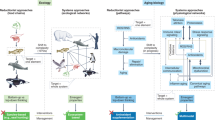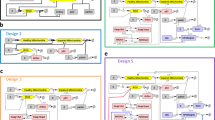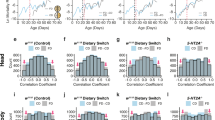Abstract
The analysis of network topology and dynamics is increasingly used for the description of the structure, function and evolution of complex systems. Here we summarize key aspects of the evolvability and robustness of the hierarchical network-set of macromolecules, cells, organisms, and ecosystems. Listing the costs and benefits of cooperation as a necessary behaviour to build this network hierarchy, we outline the major hypothesis of the paper: the emergence of hierarchical complexity needs cooperation leading to the ageing of the constituent networks. Local cooperation in a stable environment may lead to over-optimization developing an ‘always-old’ network, which ages slowly, and dies in an apoptosis-like process. Global cooperation by exploring a rapidly changing environment may cause an occasional over-perturbation exhausting system-resources, causing rapid degradation, ageing and death of an otherwise ‘forever-young’ network in a necrosis-like process. Giving a number of examples we explain how local and global cooperation can both evoke and help successful ageing. Finally, we show how various forms of cooperation and consequent ageing emerge as key elements in all major steps of evolution from the formation of protocells to the establishment of the globalized, modern human society. Thus, ageing emerges as a price of complexity, which is going hand-in-hand with cooperation enhancing each other in a successful community.
Similar content being viewed by others
Article PDF
Author information
Authors and Affiliations
Corresponding author
Rights and permissions
About this article
Cite this article
Kiss, H., Mihalik, Á., Nánási, T. et al. Ageing as a price of cooperation and complexity: Self-organization of complex systems causes the ageing of constituent networks. Nat Prec (2008). https://doi.org/10.1038/npre.2008.2610.1
Received:
Accepted:
Published:
DOI: https://doi.org/10.1038/npre.2008.2610.1



